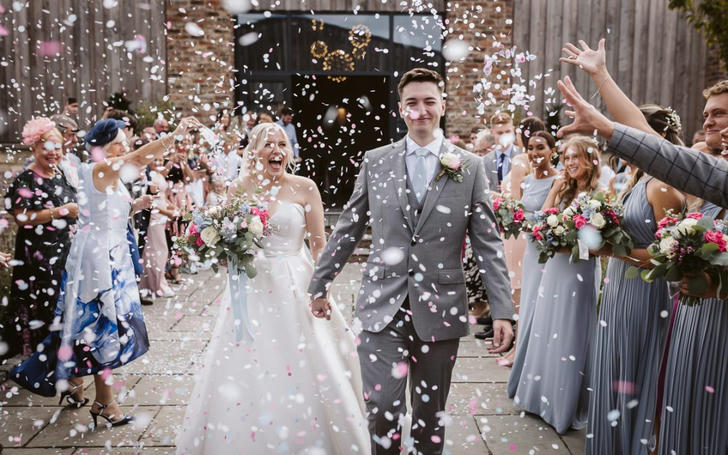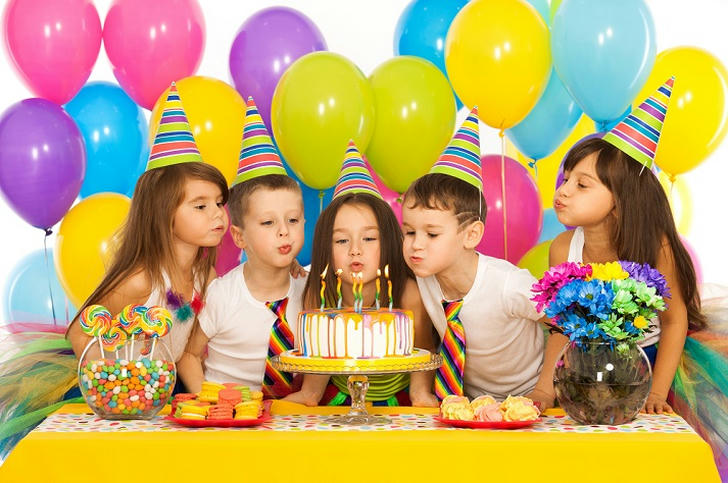How Americans Celebrate Birthdays, Graduations, and Weddings.
In the United States, people love to celebrate life’s special milestones with friends, family, food, and fun. Three of the most important celebrations in American culture are birthdays, graduations, and weddings. Each one has its own traditions, big and small, and they often reflect the spirit of joy, community, and personal achievement.

🎂 BIRTHDAYS: A Personal Celebration of Life
A Day All About You
In the U.S., birthdays are a time to make someone feel special. Whether you’re turning 5, 25, or 75, your birthday is “your day.” From childhood to adulthood, Americans celebrate with decorations, cake, presents, and laughter.
Birthday Parties for Children
Kids’ birthday parties are often filled with balloons, streamers, and themed decorations—like superheroes, princesses, dinosaurs, or favorite TV characters. Common elements include:
Cake and Ice Cream: Often decorated with candles for the child to blow out while making a wish.
Games and Activities: Like musical chairs, treasure hunts, or bounce houses.
Party Favors: Small goodie bags for guests with candy or toys.
Pinatas (especially in Latino families): A paper figure filled with candy, hit until it breaks.
Teen and Adult Birthdays
As people get older, birthday parties can take different forms:
Sweet 16 (for teenage girls): Sometimes a big event with dancing, music, and special outfits.
21st Birthday: Celebrated because 21 is the legal drinking age. Friends often go out to restaurants or bars.
Milestone Birthdays: 30, 40, 50, 60, and so on are often marked with surprise parties or family gatherings.
Traditions
“Happy Birthday” Song: Sung before cutting the cake.
Presents: Friends and family usually give thoughtful gifts.
Cards: Birthday cards with heartfelt messages, jokes, or cash are common.
Anecdote: One dad surprised his 6-year-old with a backyard party themed entirely around dinosaurs. He dressed up as a T-Rex, and the kids still talk about “Mr. Dino Dad” years later!
🎓 GRADUATIONS: A Rite of Passage
From Kindergarten to College
Graduation is a major moment in American life. It means a person has completed an important level of education—whether it’s elementary school, high school, college, or even graduate school.
Graduation is more than just a ceremony; it’s a time for families to reflect on hard work, growth, and the future.
The Ceremony
Graduation ceremonies are usually formal and held at a school or stadium. They include:
Caps and Gowns: Students wear robes and a square hat called a mortarboard.
Speeches: By principals, valedictorians (top students), or guest speakers.
Diplomas: Students walk across the stage to receive a certificate.
Tassel Turning: A symbolic moment when students move the tassel on their cap from right to left to show they’ve graduated.
Graduation Parties
These are relaxed gatherings with food, decorations, and family.
Photos and Memory Boards: Showcasing the graduate’s journey.
Gifts and Cards: Often include money or keepsakes for the future.
Decor: School colors, “Class of 2025” banners, balloons, and personalized cakes.
College Traditions
Graduating from college is especially meaningful. Some families are the first in their generation to have someone graduate. These events may include travel, special dinners, and emotional speeches.
Anecdote: One family flew in from three different states to watch their daughter become the first in the family to graduate from college. Her grandfather cried as she walked across the stage—“I didn’t get past 8th grade,” he said, “but she just made it all the way.”
💍 WEDDINGS: Love, Family, and New Beginnings
The Proposal
Before the wedding comes the proposal. This is often a planned, meaningful moment when one person asks the other, “Will you marry me?” It usually involves:
A ring (usually with a diamond)
A romantic setting (like a beach, restaurant, or family gathering)
A photographer or a friend secretly filming the moment
Planning the Wedding
Weddings in America can be simple or grand, but most follow a similar structure. Couples usually spend months planning every detail—from the dress to the playlist.
Common Wedding Traditions
Bridal Shower: A party for the bride with gifts, games, and food.
Bachelor/Bachelorette Parties: One last night of fun with friends before marriage.
Wedding Ceremony: Held at a church, beach, garden, or even a barn.
Wedding Vows: The couple promises to love and support each other.
The Rings: Exchanged as symbols of eternal love.
Reception: A party afterward with food, dancing, and speeches.
Cultural Variations
Many American weddings blend cultural or religious traditions. For example:
Jewish Weddings: Include the breaking of a glass.
African American Weddings: May include “jumping the broom.”
Indian American Weddings: Can last several days with multiple ceremonies.
Reception Fun
First Dance: The couple dances to a favorite song.
Cutting the Cake: Often a playful moment—sometimes with cake smeared on faces!
Bouquet Toss: The bride throws her bouquet to single women.
Toasts: Friends and family give speeches with jokes and heartfelt wishes.
Anecdote: At one wedding, the bride surprised her new husband by inviting his favorite rock band to play the reception. When the curtain opened and the band started playing their wedding song live, he burst into tears.
💬 Why These Moments Matter
In American culture, celebrating birthdays, graduations, and weddings is more than tradition—it’s about connection. These events:
Bring families together, sometimes after years apart
Let people reflect on their past and dream about the future
Provide space to say, “I’m proud of you” or “I love you”
They also show what Americans value: individuality (birthdays), achievement (graduations), and commitment (weddings).

In Closing
Whether it’s blowing out candles, tossing a graduation cap, or dancing at a wedding reception, life’s big moments in America are filled with joy, community, and meaning. People laugh, cry, take pictures, and create memories that last for generations.
Even though every family celebrates a little differently, the heart behind each event is the same—love, pride, and the belief that every person’s journey is worth celebrating.
